Domestic role play provides an invaluable opportunity for young children to pretend to be the key people in their lives and begin to make sense of the world around them. This inspirational blog and podcast with Amanda Belbin, Nursery Teacher at Bincombe Valley Primary School, explores how domestic role play has been placed firmly at the heart of the EYFS practice at the school.
This article is also available as a podcast:
Domestic Role Play At The Heart Of The EYFS Practice
Domestic role play has always been a part of provision in the various Early Years settings I have been in over the years, but recently has been an area that as a team we have developed further, and the journey has been so worthwhile. I have always believed in the use of real resources and this was reflected in the Domestic Role Play we set up. Real plates, real packets of food and everyday kitchen resources were available. As a setting we ensure that the children spend the majority of their time accessing continuous provision. We use an ‘In the Moment Planning Approach’ and develop learning through high quality interactions. A change in our approach to this area of provision came after attending an Early Excellence training session. A discussion took place around Domestic Role Play and how important it was that every item earned its place and that children knew its purpose. This got us thinking in more detail about how the area was set up and introduced to the children. Over the following weeks and months and years, we have continued thinking about this and it began to shape our practice and ethos. Our journey has been so exciting, and it has unfolded in such a natural and authentic way. One step has seemed to lead to another, yet with each cohort of children our journey has taken us different ways as we have been led by their interest and fascinations, playing, learning, and exploring together. Here I will share the first part of our journey this year with our new cohort of children.
Our Domestic Role Play Area (called ‘The Kitchen’) was relocated this year, away from the corner into a more central location. We made this decision as we felt we wanted the area to be at the heart of the indoor provision as it played such a key role in the children’s learning and development. It still remains adjacent to the dough area. The dough area has cookery books and baking resources available, and children will take their creations to the Domestic Role Play to share and ‘eat’ with their friends. The tables located immediately around the area are also used when the children have their lunch. At lunchtime we also use the table in ‘The Kitchen’ for children to eat. We have found that thinking very carefully about the location of this area has helped enhance its use and gives it real purpose. It is a place the children want to be and they are engaged and purposeful. The Kitchen is equipped with a cooker, fridge, table and four chairs, sink unit and shelving unit. We have a set of real plates, bowls and teacups, cutlery, tea towel, tea pot, toaster, phone, clock and toy vacuum cleaner. We also have several tinned items, butter and milk containers. We have found that in the beginning ‘less is more’ is our approach and this will be added to as the year progresses. We have already made some new additions.
As the term began and the children arrived one of our first tasks was to involve the children with ‘moving in’. The items had been packed into moving boxes and the children had great fun opening the boxes and placing the items on the shelves. We talked about the size and weight of the boxes, a great deal of perseverance and collaboration was required to move and open them. This process allowed us to introduce the names for all the items and discuss what items might be used for. The children developed ownership of The Kitchen and treated the resources with care and respect. Over the following days we made sure that an adult was available to support and model tasks such as making toast, tea and washing up. Using the butter pot and knife to pretend to spread butter on the toast became a common sight and groups of children would sit eating their ‘toast’, chatting happily.
The children began leading the learning in their play from very early on this year. Several children were very interested in using the large mixing bowl and spoon and were role playing making a cake. In the interactions between children themselves and between adults and children we were able to model and develop language. Discussions about ‘ingredients’, methods for cooking and favourite recipes began to take place during play. We provided items to enhance the evolving interest, such as a ‘pretend’ bag of flour, sugar eggs, baking tins, cupcake cases. The next natural step was for us to use The Kitchen with the children to do some ‘real baking’.
The children have decorated biscuits, exploring making icing and choosing toppings. After a walk in our school grounds where we discovered blackberries to pick, we suggested they use them to bake blackberry muffins. The children enthusiastically took part in weighing, measuring, mixing, chopping and finally baking the muffins. This experience allowed us to develop and extend language, develop relationships and cooperation. As the children took part in the process of baking, we took photographs of each step in the process. We used these photographs to make our first provision made book of the year. The children looked at the photographs as we scribed their words to accompany them. The recipe book is now in The Kitchen and the children love to look back at the process and continue to develop their use of the language.
So far, our journey this term has provided amazing opportunities to develop the Characteristics of Effective Learning and support development in all areas of learning. Levels of engagement and involvement in that area of provision have been high. As our journey continues this term, we intend to enhance provision very gently with items that will stimulate interest whilst following the children’s lead. I am hoping to share with you where our next half terms journey takes us.
Key Questions to Consider
- Do you have a permanent domestic role play area in your learning environment?
- Do you use real items where possible?
- How do you introduce the domestic role play area in your setting?
- Do adults use domestic role play as a meaningful context in which effective interactions can take place?
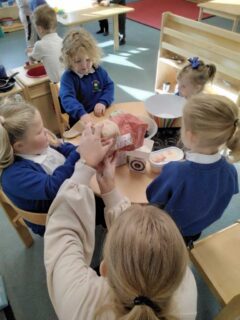
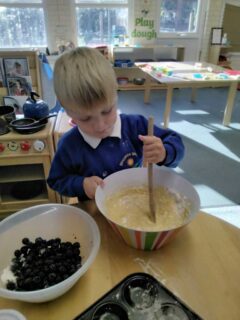
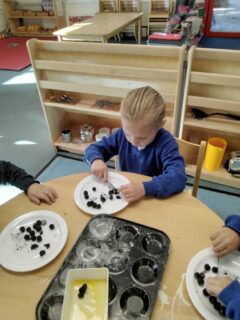
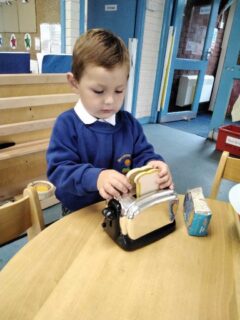
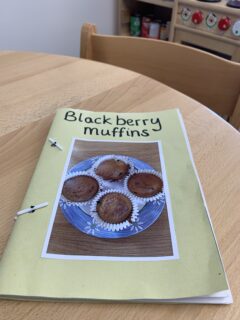
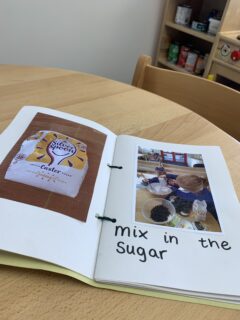
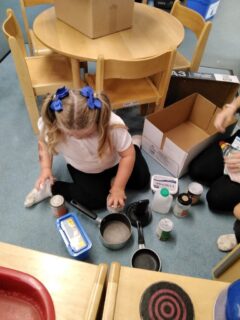
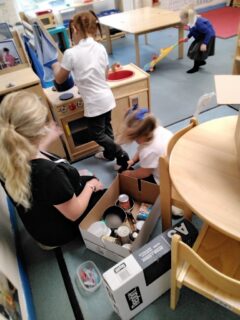
Find out more
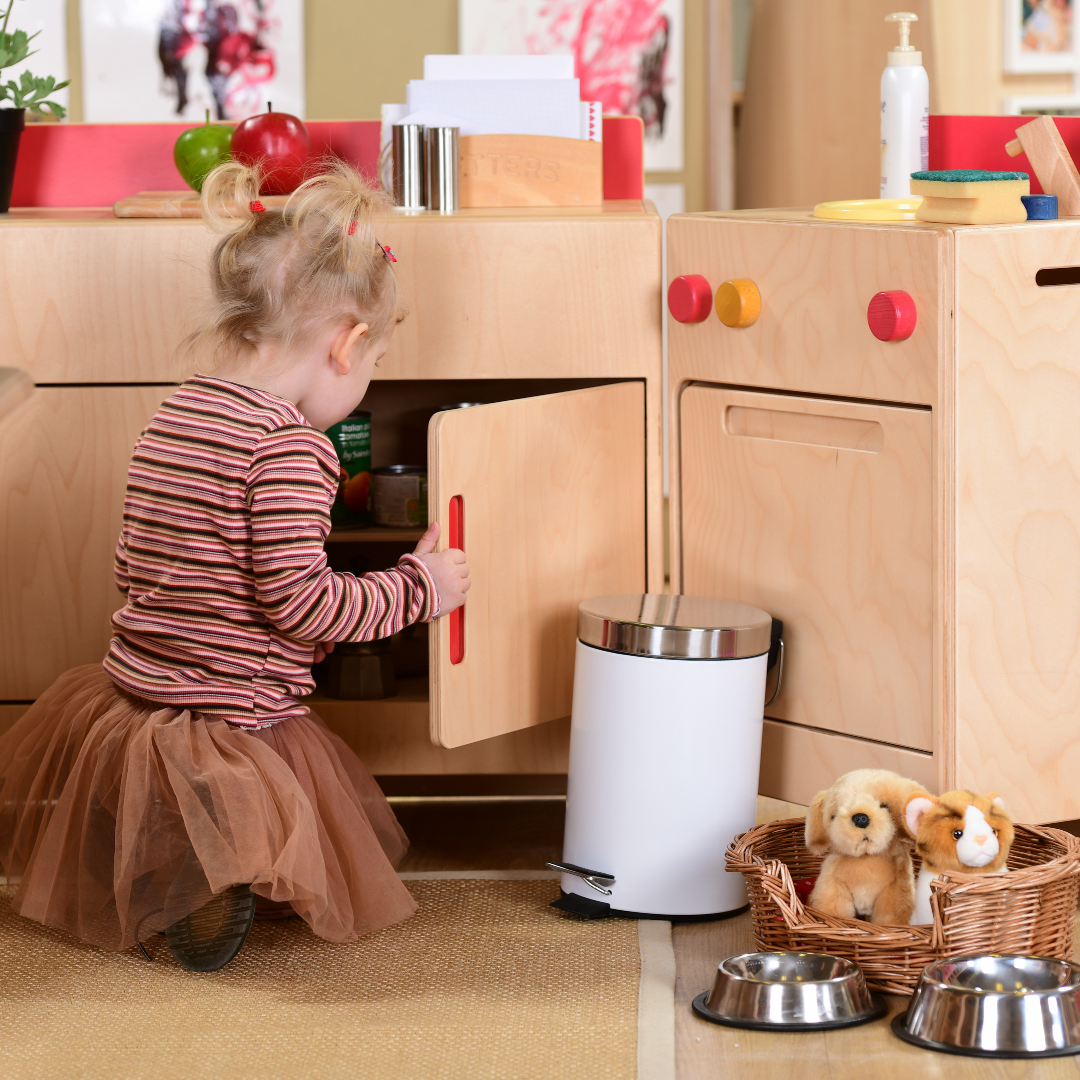
Developing a well organised home corner role play area is vital for supporting young children’s learning. If you are looking to plan your domestic role play, download our Home Corner Role Play Planning Guide.
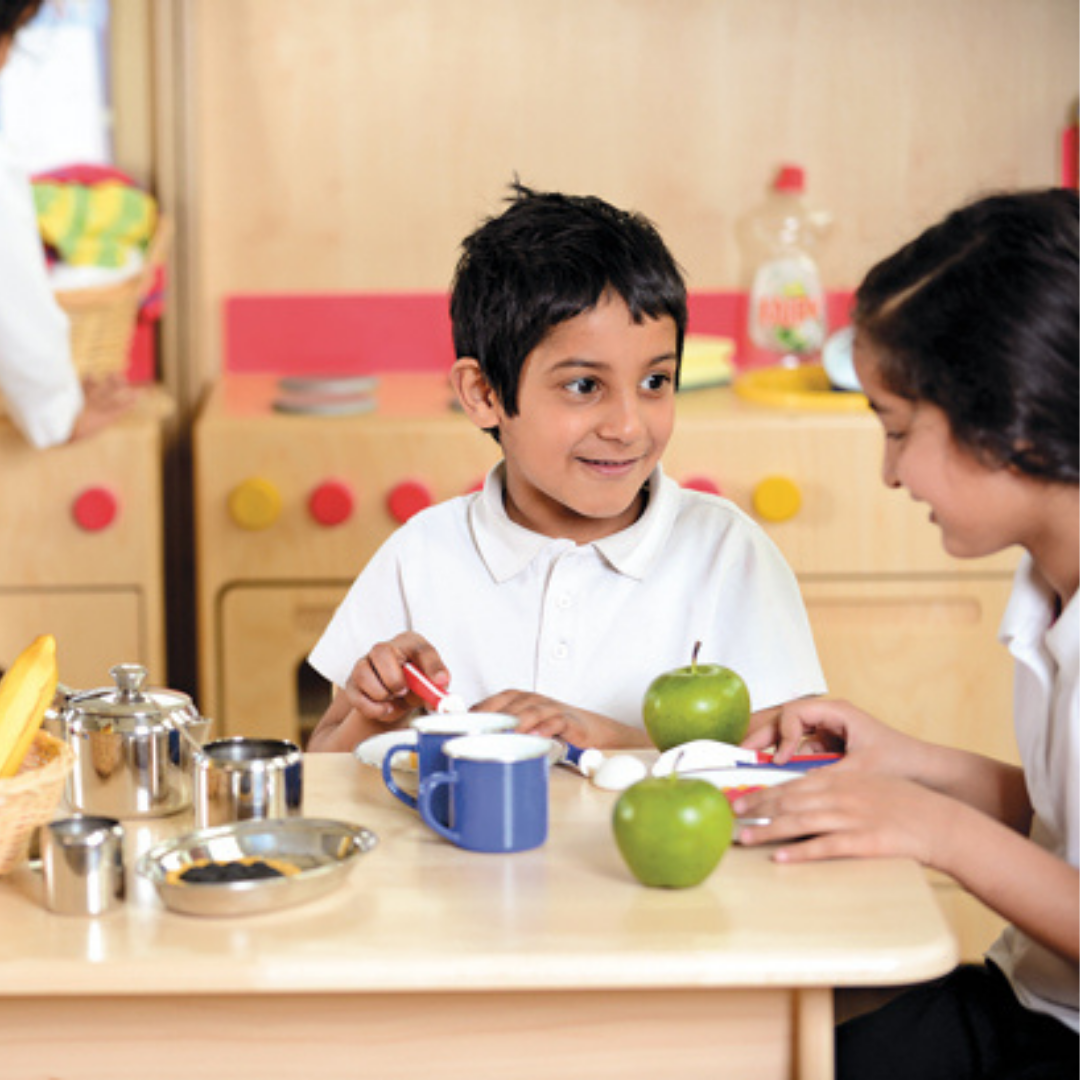
Explore our Inside Out pack of support materials for the Domestic Role Play Area with practical advice, training videos and inspiration to help you make the most of your role play provision.
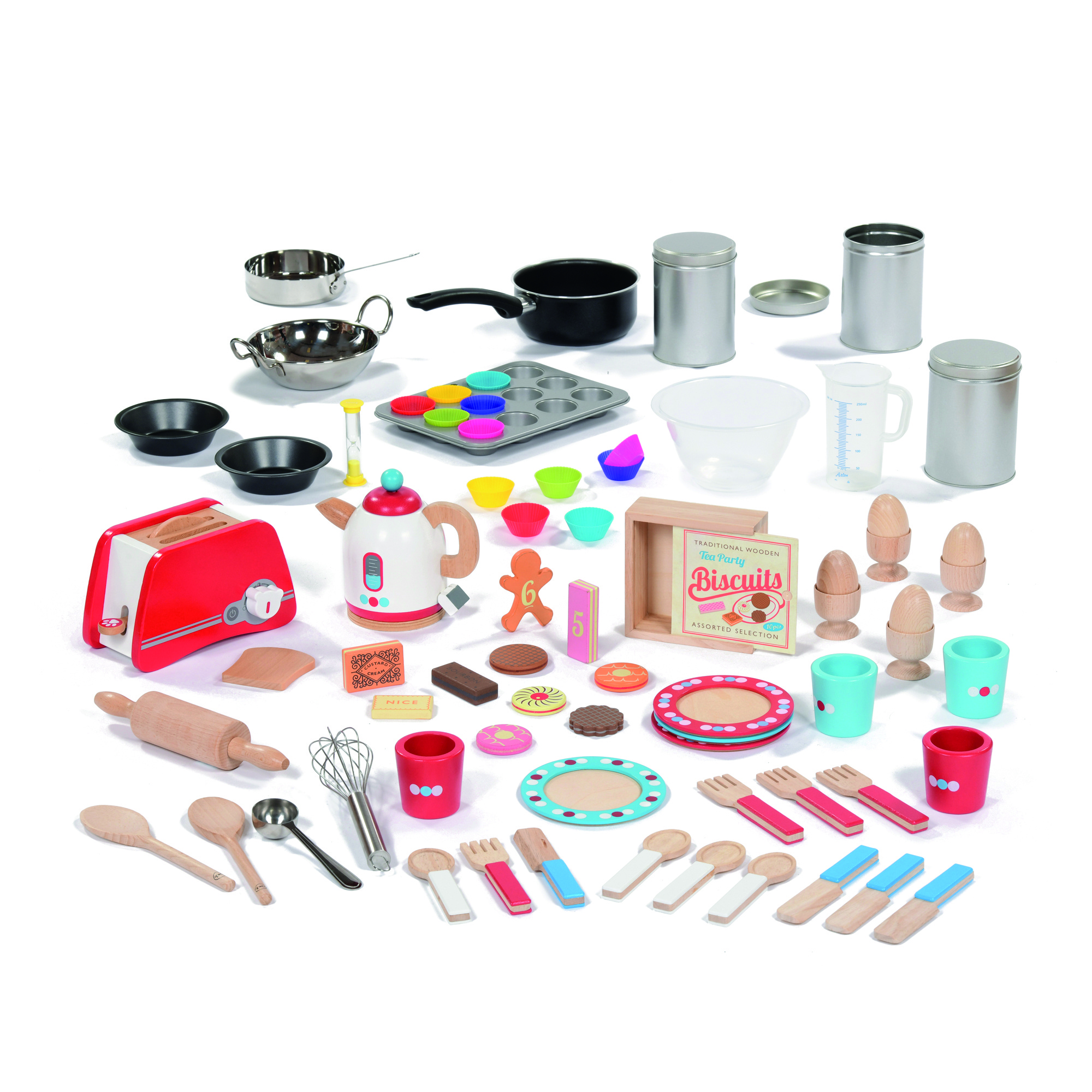
Explore our range of Home Corner Role Play Resources and Complete Collections designed to support children’s social and emotional development and encourage language and communication.

